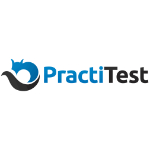TechnologyCounter provides genuine, unbiased real user reviews to help buyers make informed decisions. We may earn a referral fee when you purchase through our links, at no extra cost to you.
List of 15 Best Test Management Software
Showing 1 - 15 of 27 productsExamOnline is a exam management software for seamless and hassle-free online assessments. With its user-friendly interface features, ExamOnline revolutionizes the way exams are conducted, ensuring a secure is a process for both educators and students...Read ExamOnline Reviews
Testinvite is a versatile is a software designed to streamline the entire test creation and management process. With its user-friendly interface features, it allows users to easily create and administer tests, track results, and provide valuable insi...Read Testinvite Reviews
Tuskr is a cloud-based test management software. You can manage test cases, conduct test runs and integrate with your bug and time tracking tools. Tuskr is powerful, yet aesthetically pleasing and intuitive. With its unbeatable pricing, a generous fr...Read Tuskr Reviews
QATTS is a software designed to enhance your businesss quality assurance process. Developed with the latest technology and features, QATTS streamlines your quality control, testing, and reporting to save time and maximize efficiency. Say goodbye to m...Read QATTS Reviews
Testiny is a software designed to streamline and optimize the testing process for businesses. With its advanced features and user-friendly interface, Testiny makes it easier than ever to conduct efficient and accurate testing, saving valuable time an...Read Testiny Reviews
Klaros is a software that streamlines project management through its intuitive is a features. With Klaros, you can easily track progress, manage tasks, and collaborate with your team for maximum productivity. Say goodbye to complicated project manage...Read Klaros Reviews
As a cutting-edge software designed to streamline testing processes, TestMonitor is changing the way teams manage and execute their tests. With its intuitive interface and powerful features, TestMonitor allows for efficient communication, collaborati...Read TestMonitor Reviews
Global Online Test, a revolutionary software designed to streamline and enhance the testing experience for users worldwide. This innovative platform offers a wide range of features and functionalities to conduct efficient and accurate assessments fro...Read Global Online Test Reviews
Aqua ALM, a revolutionary software designed to streamline your project management process. With its user-friendly interface features, Aqua ALM simplifies the entire workflow, from planning and tracking to reporting and collaboration. Say goodbye to c...Read aqua ALM Reviews
With Qase, managing your test cases has never been easier. This innovative software streamlines the process of creating, organizing, and executing test cases, allowing you to focus on what matters most - ensuring the quality of your product. With Qas...Read Qase Reviews
Alithya GoTest is a software designed to streamline and simplify the testing process for businesses of all sizes. With its user-friendly interface features, GoTest empowers companies to conduct efficient and accurate testing, ensuring the delivery of...Read Alithya GoTest Reviews
Cerebry is a software designed to enhance your productivity and streamline your tasks. With its user-friendly interface features, this innovative tool is the perfect solution for all your business needs. Say goodbye to cluttered workspaces and hello...Read Cerebry Reviews
Gurully is a software that revolutionizes the way you work! With its innovative features and user-friendly interface, Gurully provides a seamless experience to enhance productivity and efficiency. Its advanced technology simplifies tasks and streamli...Read Gurully Reviews
Zebrunner is a software that is transforming the way organizations approach test automation. With its advanced features interface, Zebrunner streamlines the testing process and enables teams to achieve faster and more efficient results. From test man...Read Zebrunner Reviews
PractiTest is a solution for managing and organizing your testing processes. This powerful software streamlines test case management, bug tracking, and team collaboration, allowing you to deliver higher-quality products in less time. Revolutionize yo...Read PractiTest Reviews
- What Is Test Management Software?
- What are the top reasons why businesses need Test Management Software?
- What Are the Top Key Features of Test Management Software?
- What Are the Top Benefits of Test Management Software?
- What Are the Steps to Choose the Right Test Management Software?
- What Are the Types of Test Management Software for Different Industries?
- What Are the Technology Trends for Best Test Management Software?
- What Are the Deployment Options for Test Management Software?
What Is Test Management Software?
Test Management Software is a technology that is used to manage all aspects of software testing, from planning through execution. It contributes to the smooth and effective operation of the process by taking into account all of the necessary elements that must come together during the testing procedure.
TMS test management systems can manage a wide range of duties, from managing test cases to coordinating bug tracking and reporting. can also handle progress and status monitoring of the testing process, as well as communication between developers and testers to ensure that everything is functioning well.
Test Management Software enables users to develop tests, execute them, track results, and manage data, making it an indispensable tool for software testers.
What are the top reasons why businesses need Test Management Software?
1. Improved overall quality assurance: Businesses can utilize test management software to create comprehensive, quality-oriented plans that result in fewer errors and problems that could negatively affect user experience and customer satisfaction.
2. Faster time-to-market: Much of the manual, labor-intensive test planning and execution process is automated by test management software, allowing organizations to deliver products more quickly.
3. Reduced manual effort: Much of the manual work related to test preparation, execution, reporting, and analysis is eliminated by online test management systems, freeing up time for other duties.
4. Increased collaboration: Test management software makes it easier for businesses to communicate across departments and regions, allowing organizations to work together more efficiently to achieve results faster.
5. Improved test coverage: Businesses can use test management tools to discover and close gaps in test coverage during the development cycle, resulting in more complete testing cycles that are more likely to detect faults and issues.
6. Automated test reporting: Test management software provides automatic reporting, allowing firms to track and analyze test results in real time.
7. Accurate traceability: Traceability is provided by TMS test management systems, allowing enterprises to get insight into reported flaws, bug remedies, and source code.
8. Improved defect management: Businesses can use test management tools to better track and monitor flaws and errors that arise during various testing cycles, allowing them to handle issues promptly.
9. Streamlined defect resolution: Businesses can use test management software to resolve flaws and issues more quickly and correctly, saving resolution time.
10. Improved scalability: Test management software can be configured to accommodate an unlimited number of tests, users, and environments, allowing enterprises to easily extend their testing operations.
11. Compatibility with CI/CD pipelines: Test management tools may effortlessly interact with existing continuous integration/delivery (CI/CD) pipelines, allowing firms to test code changes throughout the development cycle.
12. Comprehensive dashboard: Comprehensive dashboards that highlight the current state of tests in test management software can help firms remain on top of the progress of their projects.
13. Advanced analytics: Businesses can use TMS test management systems to obtain deeper insights into their projects by leveraging strong analytics.
14. Streamlined budgets: Businesses can use test management tools to save costs associated with manual test planning and execution.
15. Comprehensive test suite: Businesses can use test management software to swiftly create a complete test suite that covers all potential flaws and concerns.
What Are the Top Key Features of Test Management Software?
The top key features of Test Management Software include:
1. Test Planning and Design: Allows testers to design and manage test plans, test cases, and test assets, as well as track progress against test plans and cases.
2. Test Data Management: Creates and manages test databases for testing purposes, ensuring that tests are run on data that is compatible with production data.
3. Requirements Traceability: Connects test cases to project requirements to ensure that all criteria are met.
4. Documentation Management: Contributes to the creation of test activity reports, documents test outcomes, and sends reports to stakeholders.
5. Test Automation: Reduces the time and expense associated with manual testing by automating test case execution and analysis.
6. Collaborative Platform: Allows testers on geographically distant teams to collaborate on test plans and test cases.
7. Real-Time Dashboard: Provides a clear overview of test status and progress versus test strategies.
8. Defect Tracking: Tracks and resolves issues as soon as possible to ensure that tests are up to date.
9. Test Metrics and Analytical Tools: Metrics such as defect injection and pass rates are displayed, assisting testers in detecting errors sooner in the testing process.
10. Security: Ensures important data and test assets are secure and meet security standards.
What Are the Top Benefits of Test Management Software?
The top benefits of Test Management Software are:
1. Improved Quality: Test Management Tools aid in the improvement of product or software quality by providing an efficient testing environment. It aids in the rapid and accurate identification and correction of bugs.
2. Cost Savings: Organisations can save time and money by using online Test Management Systems to provide an automated test environment and eliminate manual testing operations. This can help to cut testing time and costs.
3. Automated Testing: Test Management Software enables automated test case generation, execution, and analysis, lowering manual testing efforts dramatically.
4. Traceability: Testers can quickly trace test cases across different platforms and receive insights into overall test outcomes by using Test Management Tools.
5. Collaborative Environment: Online Test Management Systems enable testers to communicate in real-time on a single platform and verify that all tests are appropriately completed.
6. Reporting: Test Management Software generates complete reports that include all of the critical test results and other pertinent data, allowing you to make informed decisions.
7. Easy Maintenance: Online Test Management Systems simplify the process of maintaining the test environment by speeding up software updates and keeping the environment up to date with the newest developments.
What Are the Steps to Choose the Right Test Management Software?
1. Understand Your Needs: Understanding your demands is the first step in selecting the best test management software. Consider the size of your testing crew, the complexity of your project, and your available budget. Consider the precise functionality you want, such as test preparation, management, and execution.
2. Select the Right Platform: Once you've determined your requirements, it's time to look at potential platforms. Ascertain that the test management tools you select are compatible with your development environment and processes. Also, consider whether the pricing model works within your budget.
3. Identify Core Functionalities: Examine the capabilities provided by the test management software to identify which ones are critical to your testing process. Make sure you choose a program that has standard capabilities like test scheduling, issue tracking, and defect tracking.
4. Evaluate Flexibility: Consider the adaptability of the best test management software. Some platforms provide additional customization and configuration choices to help you adjust the solution to the needs of your unique testing project.
5. Test the Software: Enrol in a free trial or request a software demo to test the product's features. Check the paperwork and ask any questions you may have to confirm the system meets current industry standards.
6. Make a Decision: You should be able to make an informed conclusion about which test management tool is the best fit for your project after analyzing the features and trying the software.
What Are the Types of Test Management Software for Different Industries?
The best test management software is used to plan, organize, manage, and document management the testing process, often used in software engineering, and usually consists of a test manager, test lead, testers, and development staff.
Depending on the platform used, different types of industry-specific test management tools are available for various industries, including:
1. Banking & Financial Services: Financial services-specific test management software often includes thorough audit and compliance tracking, reporting, and risk analytics. This programme is intended to help testers track and measure the performance of software used by banks and other financial institutions.
2. Healthcare: Healthcare test management software is intended to assist healthcare organisations in detecting and diagnosing broader persistent problems created by software, such as patient safety and health information accuracy.
The programme is meant to detect any anomalies or changes in performance so that possible problems can be identified and addressed before they cause harm.
3. Manufacturing: Manufacturing software testing and installation software must be able to effectively detect and document all stages of the manufacturing process as well as how the software is being used. It must be able to measure and analyse software performance in order to ensure the highest quality product.
4. Government & Military: To ensure that all operations are carried out in accordance with legal and security norms, test management tools for the government and military must incorporate comprehensive auditing features. It must also be able to safeguard and preserve data privacy requirements compliance.
5. Retail: Retail test management software must be capable of dealing with the rising complexity of consumer contacts by automating and streamlining procedures like order management, customer support, and inventory management. It should also be able to smoothly interface with other enterprise software programs.
What Are the Technology Trends for Best Test Management Software?
The technology trends for the best test management software are as follows:
1. Cloud-based Solutions: Cloud-based solutions for test management tools are becoming increasingly popular, allowing for greater scalability and cost-effectiveness. This trend facilitates data access and sharing between departments and workspaces.
2. Automation: Automation is now a need for any modern testing software. Automation speeds up the process of developing, executing, tracking, and reporting test findings, saving time and money.
3. Integrations: To improve collaboration and data interchange, TMS test management systems should be connected with other systems. To enable effective and efficient test management, tools such as CI/CD platforms, project management platforms, and problem tracking software should be connected.
4. Analytics: Advanced analytics can provide insight into test results, allowing teams to discover trends and concerns more effectively. This pattern assists teams in increasing the efficiency and efficacy of their testing operations.
5. Mobility: Mobile device access to test management software is becoming increasingly critical. This trend enables teams to keep track of their test findings while on the go.
6. Security: With the surge in cyberattacks, test management tools suppliers' security is becoming a primary issue. To secure critical data, anti-virus and other security measures should be in place.
What Are the Deployment Options for Test Management Software?
The deployment options for Test Management Software are:
1) On-Premise Deployment: The programme is installed and operated within the company's firewall in an on-premise implementation. If the organisation has a dedicated IT team and the capacity to maintain the programme, this is an excellent alternative.
2) Cloud Deployment: Cloud deployment is an excellent choice for businesses who lack a dedicated IT team or do not wish to invest in an on-premise solution. The software is hosted and maintained remotely by the software supplier via cloud deployment.
3) Hybrid Deployment: Hybrid deployment mixes on-premise and cloud deployment components. Companies may have the best of both worlds by hosting sensitive data and apps locally while embracing cloud services for scalability and cost savings.















